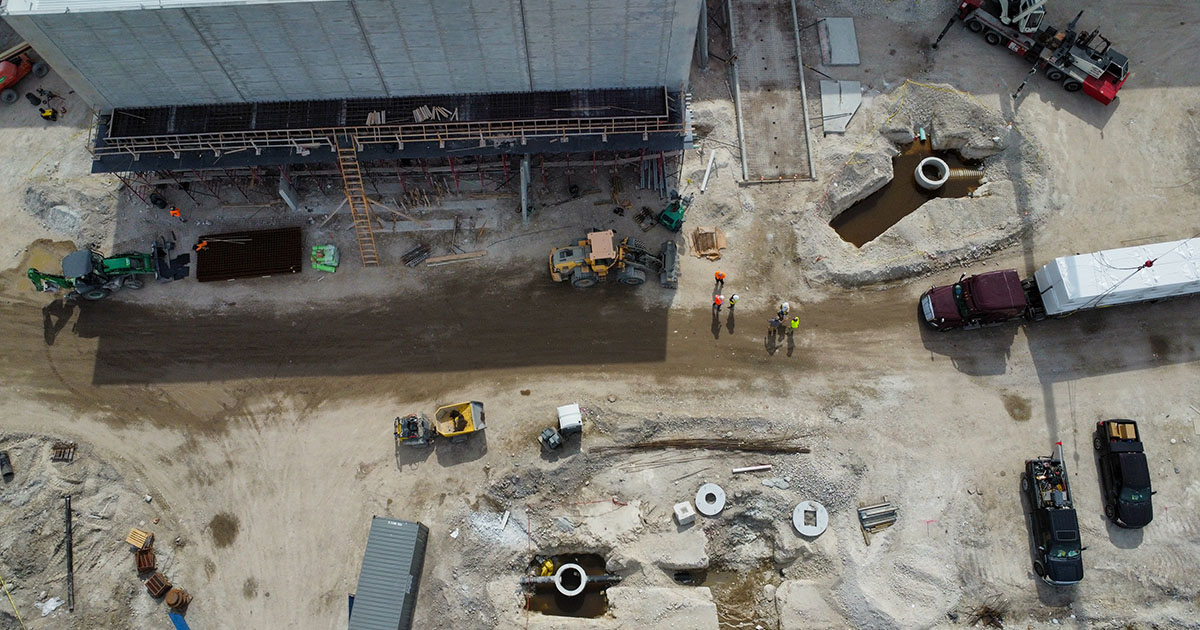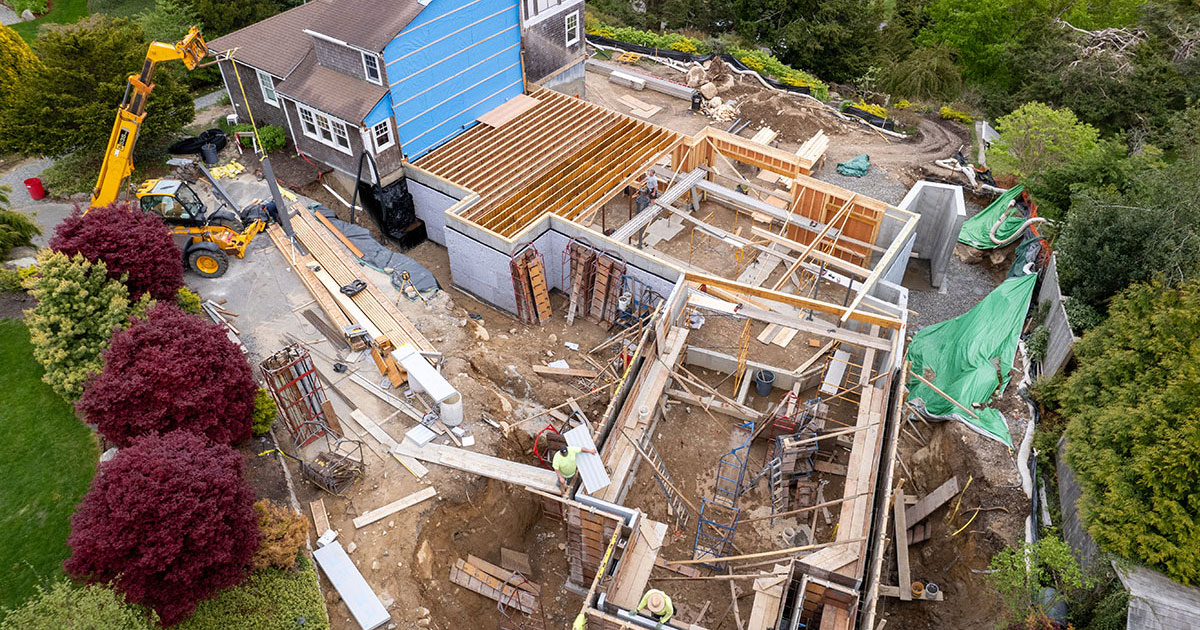
Construction Digital Marketing: 10 Strategies to Grow Your Business Online
In the competitive world of construction, digital marketing has become a critical tool for companies looking to increase their visibility, attract new clients, and grow their business. Construction digital marketing helps companies reach a broader audience through online platforms, improve their brand presence, and generate consistent leads. With more potential clients turning to the internet to research services and find contractors, having a strong digital marketing strategy is essential for success.
In this article, we’ll explore 10 powerful digital marketing strategies that construction companies can use to expand their reach, improve their online presence, and win more projects.
1. Build a Professional, SEO-Optimized Website
Your website is the foundation of your digital marketing efforts. For construction companies, a professional website serves as a virtual storefront, showcasing your services, portfolio, and expertise. To ensure your website performs well, it should be optimized for Search Engine Optimization (SEO) so that potential clients can easily find you when searching for contractors online.
An SEO-optimized website should include:
- Targeted keywords: Use relevant keywords such as “general contractor,” “commercial construction,” or “home remodeling” in your content.
- Fast load times: Ensure your website loads quickly to improve user experience and SEO rankings.
- Mobile responsiveness: Your site should be fully functional and easy to navigate on mobile devices, as many clients will search for services from their phones.
A professional, well-optimized website makes it easy for potential clients to learn about your business and contact you for quotes or consultations.
2. Implement Local SEO for Targeted Traffic
For construction companies, most of your clients will likely come from local areas. That’s why local SEO is essential for driving traffic to your website from people searching for services in their area. Local SEO helps your website rank higher in local searches like “contractors near me” or “roofing companies in [city].”
To improve your local SEO:
- Claim and optimize your Google My Business profile: Ensure your business appears in local map searches with accurate contact details and photos of your projects.
- Use location-based keywords: Incorporate city and region names throughout your website and content to target local audiences.
- Build citations: Get listed in local directories like Yelp, Angie’s List, and Houzz to improve your visibility in local search results.
Local SEO ensures that potential clients in your area can find your business quickly and easily, increasing your chances of getting new leads.
3. Leverage Pay-Per-Click (PPC) Advertising for Immediate Leads
Pay-Per-Click (PPC) advertising is a highly effective way to generate immediate leads for your construction business. By placing ads at the top of search engine results for specific keywords, PPC helps you reach potential clients who are actively searching for services like “commercial contractor near me” or “home remodeling in [city].”
Key benefits of PPC advertising include:
- Immediate visibility: Your ads appear at the top of search results, driving traffic to your website right away.
- Targeted campaigns: PPC ads can be customized to target specific locations, demographics, and search terms, ensuring your budget is spent effectively.
- Measurable results: PPC campaigns allow you to track clicks, conversions, and ROI, making it easy to measure your success.
PPC campaigns are ideal for construction companies looking to quickly generate leads and grow their client base.
4. Use Social Media to Showcase Your Projects
Social media marketing is a powerful tool for construction companies to engage with potential clients and showcase their projects. Platforms like Instagram, Facebook, and LinkedIn provide a space for visual storytelling, where you can share completed projects, client testimonials, and behind-the-scenes content.
Effective social media strategies include:
- High-quality visuals: Post images and videos of completed projects, before-and-after transformations, and on-site progress to engage your audience.
- Client testimonials: Share positive feedback from clients to build trust and credibility.
- Targeted ads: Run social media ads to target local homeowners, property developers, or businesses looking for construction services.
By maintaining an active presence on social media, you can build a loyal following and attract more clients to your business.
5. Email Marketing to Nurture Leads
Email marketing allows you to stay in touch with potential clients, nurture leads, and keep your business top-of-mind when they are ready to start a project. With regular email newsletters and updates, you can share valuable content and promotions that encourage clients to take action.
Effective email marketing strategies include:
- Project updates: Share progress on ongoing or recently completed projects to keep clients engaged.
- Exclusive offers: Provide discounts or special promotions to email subscribers to incentivize them to hire your services.
- Educational content: Offer tips, guides, or industry news related to construction, home renovations, or property maintenance.
Email marketing helps you build relationships with potential clients and convert them into paying customers over time.
6. Content Marketing to Establish Authority
Content marketing is one of the best ways to position your construction company as an industry leader and build trust with potential clients. By creating valuable content, such as blog posts, guides, and case studies, you can attract new visitors to your website and demonstrate your expertise.
Types of content to create include:
- Blog posts: Write about construction tips, home renovation ideas, or how-to guides that address common client questions.
- Case studies: Showcase completed projects with detailed descriptions of the challenges faced, solutions provided, and the results achieved.
- Whitepapers or guides: Offer in-depth resources on industry trends, sustainable building practices, or energy-efficient construction.
Content marketing helps build authority, improves SEO rankings, and attracts qualified leads to your website.
7. Video Marketing for Greater Engagement
Video is an incredibly engaging medium, and for construction companies, it’s a powerful way to showcase projects, explain services, and build trust with potential clients. Video marketing can help you stand out by providing a dynamic look at your work.
Types of video content to consider:
- Project walkthroughs: Take viewers on a virtual tour of a completed project, highlighting the design, features, and process.
- Client testimonials: Record video interviews with satisfied clients to provide social proof of your quality and reliability.
- How-to videos: Share helpful tips or explain the construction process to demonstrate your expertise.
By sharing videos on your website, YouTube, and social media, you can increase engagement and reach a wider audience.
8. Online Reviews and Reputation Management
Online reviews play a significant role in the decision-making process for potential clients. Positive reviews on platforms like Google, Yelp, and Houzz can build credibility and influence new clients to choose your business.
To manage your online reputation:
- Encourage reviews: After completing a project, ask satisfied clients to leave reviews on Google or other review platforms.
- Respond to feedback: Whether reviews are positive or negative, respond promptly and professionally to show that you value client feedback.
- Showcase reviews: Highlight positive reviews on your website and social media profiles to build trust with potential clients.
A strong online reputation improves your visibility and helps convert visitors into clients.
9. Use CRM Tools to Manage Leads
Customer Relationship Management (CRM) tools are essential for managing leads and improving client communication. A CRM system helps track inquiries, follow up with potential clients, and keep your sales process organized.
Key benefits of CRM tools include:
- Lead tracking: Monitor the status of leads and ensure timely follow-ups to prevent losing potential clients.
- Automated communication: Set up automated email responses and reminders to stay connected with leads.
- Improved organization: Keep track of all client interactions, project details, and quotes in one place.
By implementing CRM tools, you can streamline your lead management and improve conversion rates.
10. Analytics and Data-Driven Improvements
To ensure your digital marketing efforts are working, it’s important to track the performance of your campaigns using analytics tools like Google Analytics or social media insights. Construction marketing professionals can help you monitor key metrics such as website traffic, conversion rates, and engagement levels.
Key metrics to track include:
- Website traffic: Analyze where your visitors are coming from and which pages they engage with most.
- Conversion rates: Track how many leads are generated from your marketing campaigns and which sources are most effective.
- PPC performance: Monitor your pay-per-click ads to measure clicks, cost-per-click (CPC), and return on investment (ROI).
Regularly reviewing your analytics ensures that your marketing strategies are delivering results and helps you make data-driven improvements.
Construction Digital Marketing to Drive Business Growth
Construction digital marketing is essential for growing your business, attracting new clients, and building a strong brand online. By implementing strategies such as SEO, PPC, content marketing, and social media, construction companies can increase their visibility, generate leads, and win more projects. With a comprehensive digital marketing plan in place, your construction business can reach new heights of success in the competitive marketplace.

